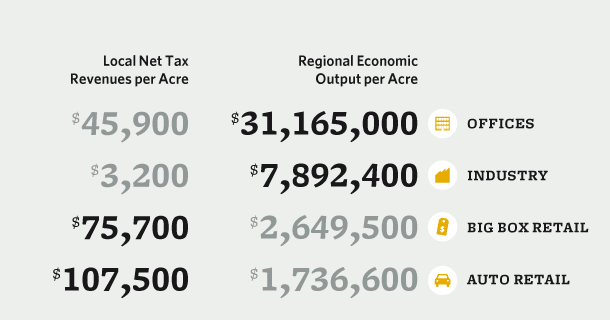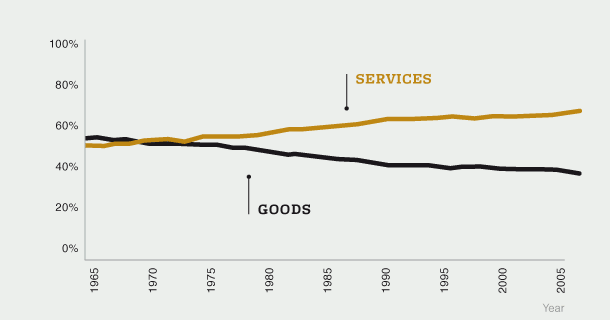To create livable communities and keep our region economically competitive, state and local tax systems should encourage effective land use, generate good jobs, and trigger sustainable economic activity. Our tax policies should avoid causing large inequities between households, businesses, and local governments and should be transparent and predictable for taxpayers.
Taxes Influence Key Decisions
Illinois governments rely more on sales and property taxes than other states, which can cause inefficiencies (such as high local tax rates, a host of exemptions and limitations, or counterproductive competition for residential and commercial development) and inequities (such as the widely varying local government tax bases across our region and the regressive nature of the tax system overall). These taxes influence where businesses locate and where housing is built, often distorting land use decisions that could be better shaped by market forces.
Our current sales tax system pushes communities into intense competition to attract retail businesses that generate sales. Such developments, including "big box" stores and auto dealerships, offer fewer economic benefits compared to the high-wage jobs and economic impacts of office developments and industry. An over-reliance on sales taxes can also leave municipalities short of funds when retail sales slump in economic downturns.
Though they are the most important revenue source for local governments, property taxes vary greatly from community to community. If well designed, they can match local service needs with the value of residential and commercial properties and provide a stable source of local revenue that does not dramatically change from year to year. But in other cases, property taxes can create confusion for taxpayers and local governments alike. For example, assessment levels often differ by county, special exemptions apply to some property types but not others, and state-imposed local tax caps set arbitrary limitations on annual local tax levies — all of which can create instability and unpredictability. And our dependence on the property tax for public education creates wide disparities in school funding throughout the region.
Tax Polices to Make Our Region More Competitive
Reforming our tax policies will improve the livability of our region and enhance our business climate by broadening the tax base, limiting land use distortions, and making the system more predictable, transparent, and fair. To guide these needed reforms, GO TO 2040 establishes a task force of local governments, businesses, and tax policy experts reporting to the CMAP Board to recommend action on a small set of state and local tax policy issues.
The GO TO 2040 recommendations intentionally do not focus on raising tax rates or increasing overall revenues for state and local governments. Reforms can be structured to keep taxes level overall. But even without adding new revenue, reforming state and local tax policies will help our region stay economically competitive for the long term.

